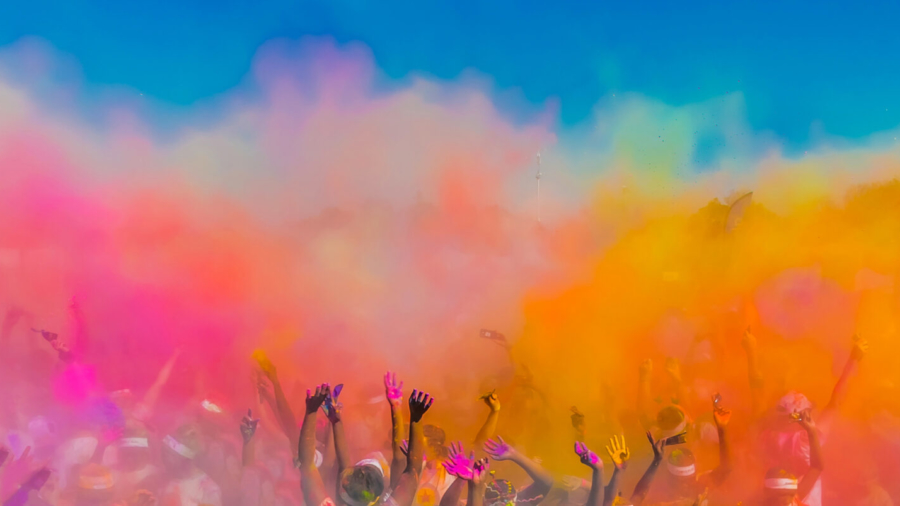The views expressed in this blog are personal, and not intended to malign any religion, ethnic group, or individual.
This year, with COVID-19 cases daily on the rise, private (inside housing societies) and public Holi celebrations have been banned, and I can’t help dancing with joy at the news. Holi is a festival I absolutely detest – I have hated it since I was a child. Whenever someone asks me why I don’t play Holi, I always tell them, “The whole ordeal feels – kind of – pointless. You spend an entire day getting drenched in colours, and then spend the rest of your time struggling to scrub yourself clean.”
However, the reasons behind me disliking the “festival of colours” go beyond hygiene factors. One of the major issues I have with Holi is the fact that it actually, at some level, advocates that consent does not matter. “Bura na mano Holi hai” is a statement that needs to be made redundant. Just because it’s Holi, it does not give anyone the right to behave inappropriately or force someone to play who does not wish to. Also, why is someone off the hook just because they proclaim, “Bura na mano Holi hai?” That’s not even an apology!
The days nearing Holi always filled me with a sense of dread during my early fieldwork days because I did not know when I’d get hit by a water-balloon. Also, why would anyone want to throw water balloons at moving cars or on people driving scooters? People could lose their balance, and it could lead to accidents. This is a complete disregard for safety. Also, please stop smearing colours on poor strays. The harmful chemicals that enter their eyes and ears cause them pain, but I guess it’s too much to ask from people to respect animals when they don’t even extend the most basic courtesy to fellow human beings?
Holi has normalized the behaviour of invading a person’s personal space, applying colours without asking for consent, all in the name of festivals and celebrations. Randomly pouring coloured water on strangers – people you don’t know – and laughing about it is a cheap move. It’s not funny. It’s worse when people use this opportunity to touch people inappropriately on the pretext of smearing them with colours. Violation of person space is almost second nature in India. If anyone has ever travelled by a Mumbai local going to Virar, they will know what I mean when I say that personal space in India can sometimes be a rare luxury. We have taken it for granted that we are going to occupy someone else’s space, and it does not matter that they want to us keep distance.
I am not a spoilsport or a killjoy simply because I have no wish to have anything to do with the kind of forced assault that is so commonplace in Holi. I’ve had friends narrating incidents of how they wait in the morning and randomly throw colours at unsuspecting individuals on the road. Saying, “It’s Holi! They should have known better than stepping out if they did not want colours,” is another way we propagate the culture of victim-blaming. Stop! It’s 2021, and there’s a need for you to educate yourself if you still find yourself harbouring such belief-systems.
When I was in college, I remember sharing with a bunch of friends how I don’t play Holi and I like staying indoors. A class-mate actually remarked, “Well, I know what to do! I am going to come to your place and drench you in the darkest of colours!” Being a person who rarely puts up with nonsense, I did not hesitate in giving them a talking to and delivering a lecture on basic etiquette. Needless to say, they were embarrassed and tried passing it as a joke, but again, joking about consent is not funny. It never was. It never will be.
Some friends have asked me how I’ve managed to spend all the years of my life without ever playing Holi. The answer is simple. My family understands consent, and even though we always had lots of relatives at home on Holi, never were colours applied to the ones who did not want to play. My cousin and I always stayed in one room, eating the most delicious food that was prepared, without a care in the world and without worrying about stepping out and being smeared in colours. It’s strange that I have to consider myself “lucky” for having been treated with respect, dignity, and with complete regard for personal space since I was a child. Isn’t that what each one of us is entitled to? These are basic human rights we are talking about. No one should have to feel grateful or fortunate for being treated with basic decency.
Many people reading this may think, “This is a boring lecture! She’s taking the fun out of all the festivities!” If you happen to be one such person, perhaps, it’s time for you to introspect why your sense of fun comes from making another person feel uncomfortable, and if, a small act of asking for permission could make someone feel comfortable, what is stopping you from engaging in the most basic act of decency?
Holi is played to celebrate the victory of good over evil, so please don’t misbehave or engage in inappropriate action in the name of the festival. Also, it’s called “playing Holi” for a reason – every game you play has rules, and the first rule is that you play with people who want to play. I am not telling you to not play with colours. However, play with people who want to play – smear your loved ones who are playing with colours, drink thandai or bhaang, have fun! But it’s time now to make Holi a consensual affair.
“Consent maango, Holi hai!”
Happy Holi
Spread happiness and cheer and remember that can never come by violating anyone’s personal boundaries!

